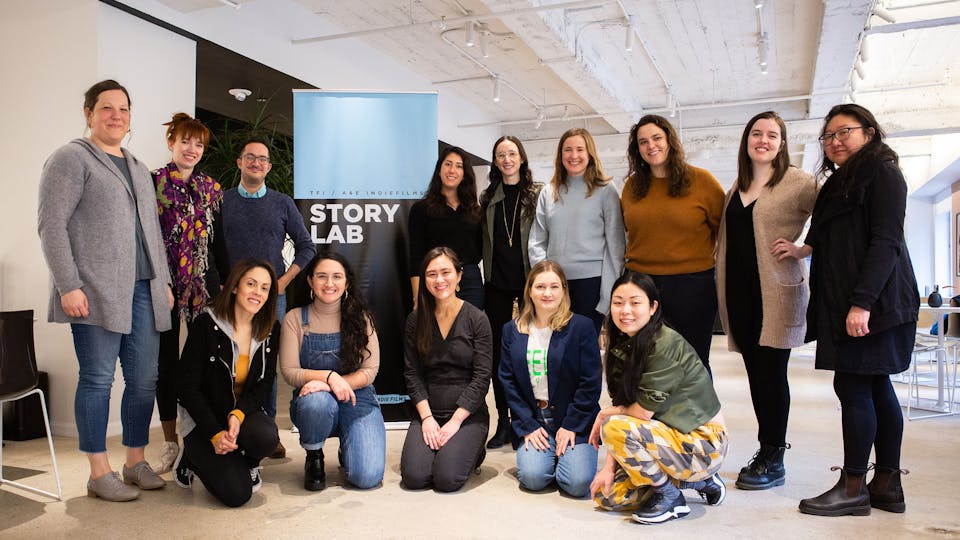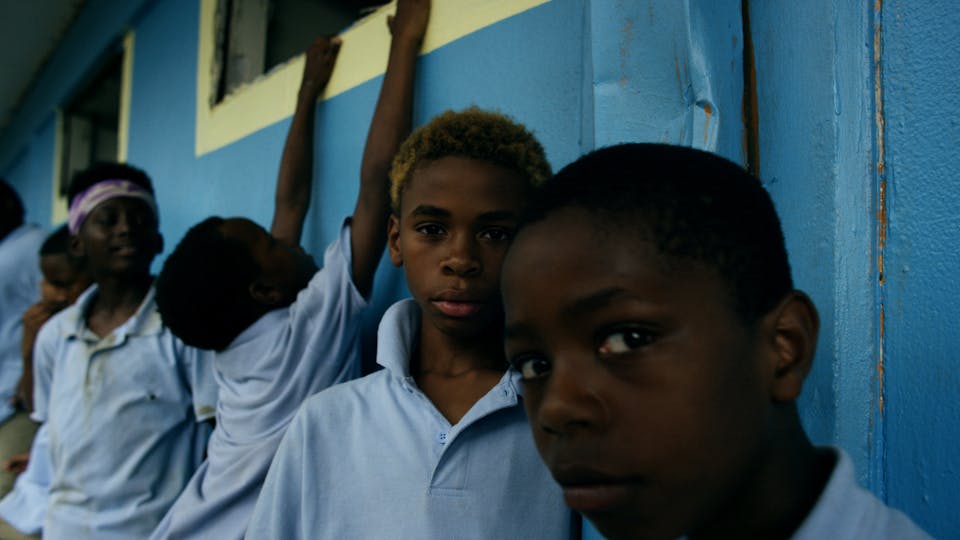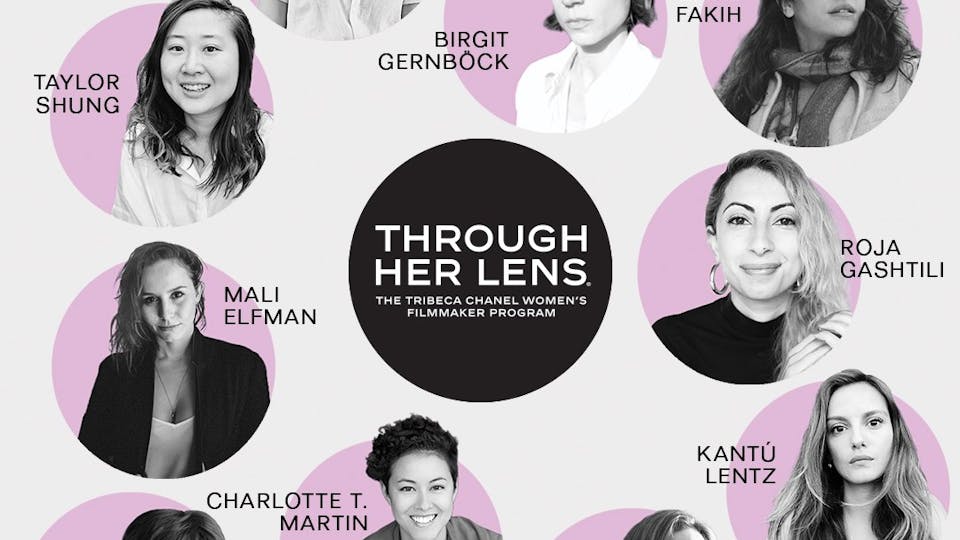Programmers Q&A: Tamir Muhammad & Ryan Harrington Give the Dos and Don'ts of Submitting a Project

As submissions for the TFI Documentary Fund, TFI Latin America Media Arts Fund, TFI Sloan Filmmaker Fund and Tribeca All Access® open tomorrow we thought this would be a good time for you to hear from our program heads: Tamir Muhammad, who is the director of feature programming, and Ryan Harrington, director of documentary programming. In this Q&A, Tamir and Ryan give some insight into their teams’ evaluation process and offer some useful tips on how to apply. And if you have more questions, be sure to take part in our Program Webinar on Thursday via USTREAM at 4pm EST. What are the benefits of a filmmaker receiving a grant from TFI? Tamir: I think filmmakers get told "no" a lot. So one of the many benefits from us is you're getting told “yes” from an established organization that understands not only what it takes to complete your film but what it takes to support your career. We do a lot of assistance to not only our grantees but alumni as well, so it's buying into the idea of community and continued support. Ryan: One major difference between Tribeca and other organizations is that we have a really specific eye on audiences and what it means to each of the films that we support. So we're really digging a bit deeper to help filmmakers identify who the audience is and with all the extensions of the Tribeca Enterprises family, we're really able to help promote these films and locate audiences for them. What are the biggest misconceptions filmmakers have about applying to a grant? Tamir: I think a big misconception is that if you get told “no” the first time you apply that you can never re-apply. I think often projects change and we want to see the growth. Now, that doesn't mean that you should just blindly re-apply with the same package, it should mean that on your own continue to work on the project so when our submissions open again a year later we can take another look at it. That's a really good point because we work all year tracking films so if we see a nugget of something that just wasn't quite ready, it's a very competitive landscape so there could be just one element of the film that wasn't working for us this round but next round — after more work in honing the project by you — it could work. So we're tracking those films and if you submit to us and we notice that you haven't made any progress on it, or you've submitted the same thing you did in the previous cycle, then chances are you won't get the grant. But so often I think we've given grants to projects that have applied to us two, three, even four times. So if there's a project that didn't receive a grant but you and your team liked it, will you reach out to that filmmaker and tell them that they were close this round and to apply next year? Ryan: It's case by case. Typically we do not give formal feedback on the judging process that we do, but we're always reaching out to filmmakers where we see some potential. Tamir: And often in that process of reaching out we find out information that was left out of their application. Whether it's because they didn't fill it out correctly or maybe there wasn't space provided for that information, so it's a great opportunity to learn how we can better find out how to get the information we need. Tell me a bit about the evaluation process? Tamir: Most of our programs have an open call for submissions with the exception of some specific grants for our alumni. Once you apply to our programs we have a team of readers and people from the industry pulled in to help us evaluate each and every project. Based on that evaluation we internally sit down and discuss which projects we think are going to hit a lot of points, mainly the mission of our Institute but largely the specific needs of each program. After that sometimes we do have a jury who selects the final projects. Our juries typically consist of a lot of different high profile people from the specific industry, but also a lot of times it's set by Ryan, myself and our teams really trying to identify a certain curated group of filmmakers and projects that will be viable to the industry market. Ryan: I think we have a really thorough vetting process internally. Everything, I feel, that comes through the door is watched by at least two if not three or four people in terms of the documentary space. So rest assured if your film is coming in, it's being look at in its entirety by numerous eyeballs. And on the documentary side we operate in a system of rounds so everything is looked at by one person and if they advance it or consider it, then it's sent off to a different round of people. Everything that's not, is watched by internal people. Then we're always talking, always going back into the pool to see if we missed anything. AUDIO: Tamir tells you what stories he’s looking for
Is there such a thing as the "perfect" submission? Ryan: I think there are those calling cards that I look for in every submission that makes it rise to the top of the pile. For me it's all about story, story, story. Originality, something we haven't seen before, unique access into a world we haven't seen before. And then on the other side of it, it's about the filmmaker. It's a filmmaker who we really believe has a career in this field. Where we are granting the film money it's also the filmmaker and someone we want to support over and over again. Tamir: In the narrative space you're trying to convince people to invest a lot of time and money in something that's written on paper. So, they don't have the advantage of seeing what the footage is going to look like. That being said, the perfect submission, if there was one, is one where a filmmaker with previous work that shows they have exemplified an understanding of how to make a viable project that actually speaks to story, character and production value. But at the end of the day the perfect script is always one that’s clear to understand. It has to be clear to me the type of film you want to make so I can take that information and help you pitch it to the industry. What's the biggest mistake a filmmaker does when submitting? The biggest mistake for me is when a filmmaker makes assumptions. A lot of filmmakers assume that we understand what they are giving us. Sometimes it's not clear what they’ve written or a filmmaker assumes we understand why they’ve listed their budget at a particular number. Often times a filmmaker will put a [budget] number for the sake of putting one in when they should really take a step back and either admit that they don't know or properly hire a line producer to really take a look at the project. I could go on, but the main theme is assume nothing, be as thorough and clear in your application as possible, because as Ryan noted, we're not the only ones taking a look at your project so what I may know other people may not. Ryan: I would also say don't take it personally. This is professional, just realize we're part of a larger organization and it's not just Tamir and I. We're just one part of a big wheel that's looking to work and help filmmakers. Just because we can't fund you right now doesn't mean we don't like the film. Also, filmmakers will just email us asking questions when almost anything that they would possible want to know is on our website. I suggest go through our entire website. We have a large frequently asked question section for each program. Also, look at the films we've supported because it will really put your film and what you’re applying for in perspective. Is there anything filmmakers can do once they've submitted to help their projects? Ryan: I think you have one chance to submit per cycle, so put your best foot forward. Tamir: I agree with Ryan. Unless there's some kind of major attachment or you got a major influx of funding— Ryan: Or someone has picked up the film. These larger updates are important for us to get. AUDIO: Ryan gives you tips on sending in the right treatment and sample footage
What's the one thing a filmmaker should never do while submitting their project? Ryan: We have a cycle that's open for two months and on the eve of our closing day we get a thousand phone calls and I would say 96% of the actual submissions pour into us right at the deadline. Calling us on the deadline day is not the best idea. You have two months to prepare for it. And realize if you submit to us earlier you're not going to be lumped in with thousands of other submissions. Even a couple of weeks earlier is a good thing. Tamir: Exactly what Ryan said. [Laughs] Is there a topic or story that you think isn't told enough and you'd like to see more submissions of? Tamir: We tend to get a lot of dramas but not a lot of comedies. We'd like to see more comedies and more genres other than traditional dramas. Ryan: For me I'd like the filmmaker to show me what I should be looking for more. That's the great thing about our job is when evey submission period closes you can see the current trends in filmmaking in terms of topic, style, craft, and it is really incredible. My challenge to the filmmaker is show me something I haven't seen before. Any new grants within your programs? Ryan: We have a few new grants launching this fall with our submissions. One is the TFI/ESPN Prize which really further solidifies the relationship that Tribeca has with ESPN. ESPN has been a partner of the Tribeca Film Festival for a number of years; they have the sports festival during TFF. The prize is a $30,000 grant under the TFI Documentary Fund that is for the development or production of a feature documentary that focuses on a character-driven piece that has sports or athleticism or competition within its themes. I'm really excited about that because I think over the years you've seen these human interest stories that focus on sports, so I'm just so happy to have an area where we can specifically support those films. And then through the TFI Latin America Media Arts Fund we're working with an organization in the UK called WorldView for the TFI/WorldView Partnership, which will support the development of documentary projects from the Caribbean and Latin America. I'm really excited about the Caribbean aspect of it because really our goal is to find and discover emerging talent from all over the world and the Caribbean is a region that we've never been able to hit before. We always look for filmmakers there every year but we've never found a way to actually communicate with that audience so I think this is really going to help us get into those areas of the world that we haven't been able to reach before. Tamir: On the narrative end we have a new endeavor that we're excited about called the Heineken Affinity Award, which is going to draw attention to African-American filmmakers and the films they're making. And the winner of this award will receive a $20,000 grant. We're going to be able to showcase 10 filmmakers via our website and other marketing and promotional outlets and we're going to highlight both their previous work and projects they're currently working on. It's a nomination process from the industry which is a great aspect and then voting will be open to the public and it's up to them to choose their favorite out of the 10 that we're going to spotlight.. What's the best advice you can give a filmmaker who's submitting their project on Sept. 5? Be strategic when you're applying. I personally look for filmmakers that are not submitting to us because they want to make a film but because they making a film, and that's really important to me. You don't have to be making a film by being on set behind a camera, you can be making a film by every day re-writing a draft of your story, or continuing to have conversations with different producers or talent to attach themselves. But overall the point is to actively work on your project by the time you are applying to us and going forward. Because that's the best way that we can provide our support to you. Ryan: I'm honestly looking for really good stories that happen to be documentary films that haven't been told before, so show us what you got. [Photo: (Left-Right) Tamir Muhammad and Ryan Harrington]






